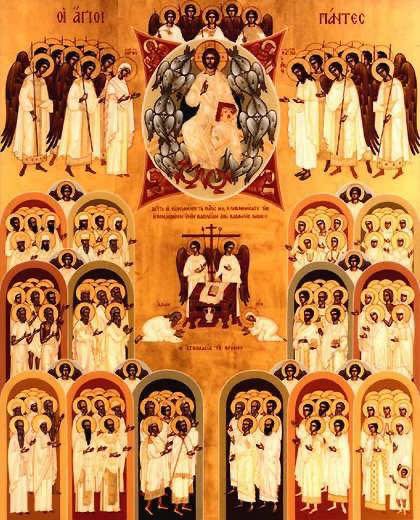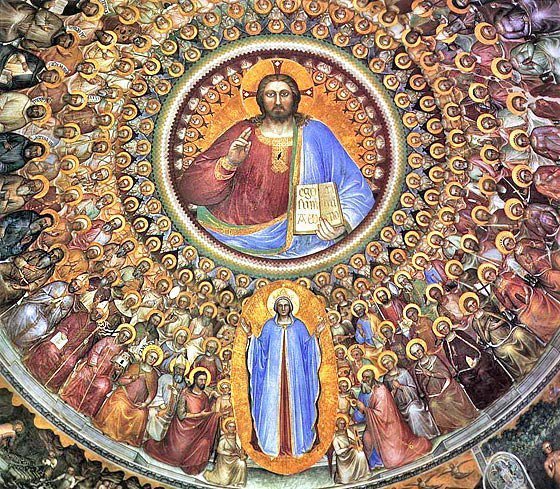There are 5 All Soul’s Saturdays. 2, 3, and 4 were on Saturdays during the Great Fast on days that had no other commemoration (e.g. the Miracle of Theodore and Akathistos). This is due to the liturgical law that fasting periods are more conservative and retain ancient customs. Saturday, the day our Lord was in the tomb was a day for remembering the departed, and that has persisted until the present in Lent.
The All Souls’ Saturday before Meatfare Sunday was due to the Church Year. Meatfare Sunday was the Gospel of the Last Judgment and, in a way, concluded the regular cycle of Gospel beginning with Pascha and lasting until the next Great Fast (beginning with Cheesefare Sunday). It was natural, therefore, to remember the departed as we pray for all before the final and last judgment. The fifth All Souls’ Saturday the day before Pentecost does not have clear origins. Some have said that it is the Christianization of the pagan feast of Rosalia, which remembered virgins who have died a violent death. Their souls were locked in trees and were released on this feast day.
The Christians generalized this into a general feast for all the departed. Some find this controversial, since the ideology is that Christians owe nothing to pagans. We have no concrete evidence one way or the other. It might be connected with All Saints, which in the Byzantine Church was the Sunday after Pentecost, but this does not explain the one week delay. At any rate, though Pentecost is the Christian feast of the 50th day, corresponding directly to the Jewish feast of the Mt. Sinai covenant (note the Upper Room), it was also called Rusalka (in Slavonic) since it happened closely to the pagan feast.
The All Saints feast was originally “All Martyrs,” namely those who died a violent death in witness to Christ. Rome originally celebrated it at the same time as the Byzantines, but moved it to November 1, the Dedication of the Pantheon, the pagan temple made into the Christian Church of the All Saints. In our faith and worship, though, this all has a clearly Christian meaning.

 Over the last fifty-some days, we have celebrated the Paschal mystery – the central mystery of our faith, from our Lord’s crucifixion, resurrection, ascension to his sending the Holy Spirit on his followers. This Sunday, after all that has been proclaimed, we add a great “Amen!” “So be it!” This “Amen” will be great only if we make it more than just words but also actions. The Holy Spirit came upon the disciples that they might be witnesses to the Paschal mystery – our Lord’s death and resurrection, and the Greek word for “witness” is “martyr.”
Over the last fifty-some days, we have celebrated the Paschal mystery – the central mystery of our faith, from our Lord’s crucifixion, resurrection, ascension to his sending the Holy Spirit on his followers. This Sunday, after all that has been proclaimed, we add a great “Amen!” “So be it!” This “Amen” will be great only if we make it more than just words but also actions. The Holy Spirit came upon the disciples that they might be witnesses to the Paschal mystery – our Lord’s death and resurrection, and the Greek word for “witness” is “martyr.” The Greek Church celebrates the great company of saints today. The Latin Church celebrates All Saints on November 1.
The Greek Church celebrates the great company of saints today. The Latin Church celebrates All Saints on November 1.